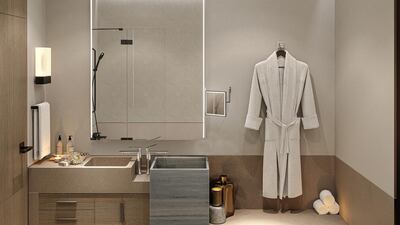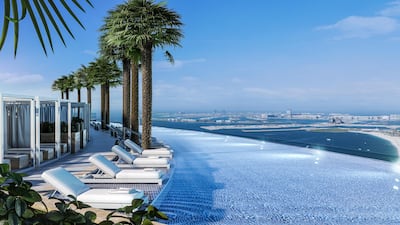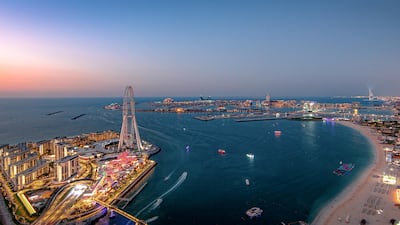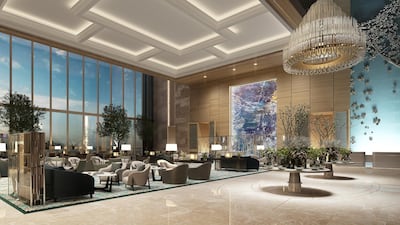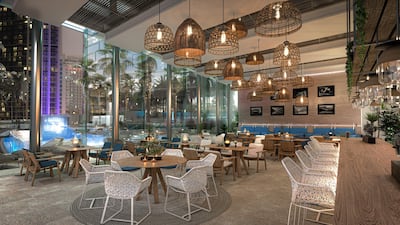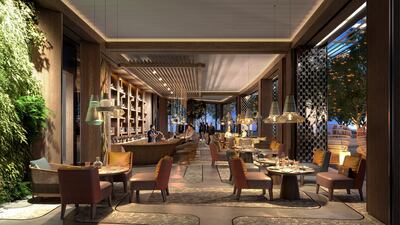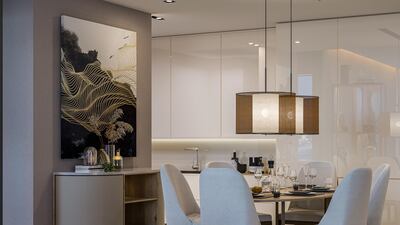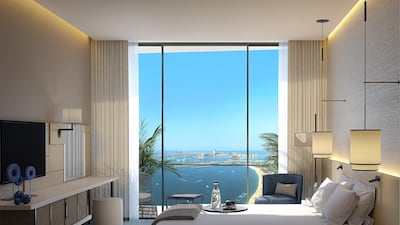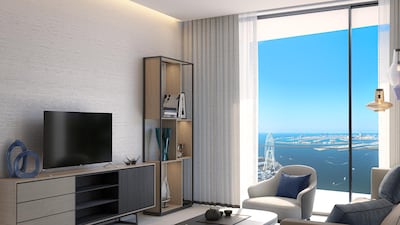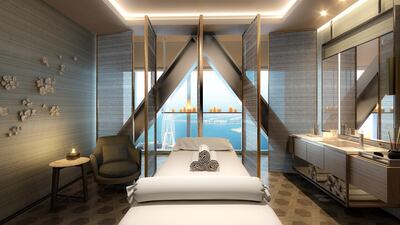One of the biggest additions to Dubai’s JBR skyline is set to open its doors next month.
The Address Beach Resort hotel will open to guests on Thursday, December 17.
Consisting of twin towers connected by what is set to be the tallest inhabited sky bridge in the world, the 77-storey building will be the newest hotel in Dubai when it welcomes guests next month.
The Address Beach Resort is also hoping to be named home to the world's highest infinity pool by Guinness World Records when it opens.
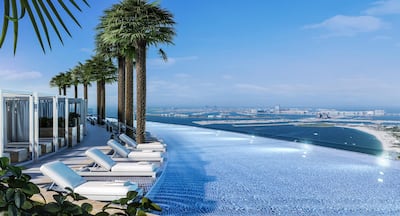
It's the first beachfront property for Emaar's Address Hotels & Resorts brand, the same group behind other popular Dubai hotels, including the Address Dubai Mall and the Palace Downtown.
The Address Beach Resort will offer plenty of dining options when it opens next month. There will be a Zeta on the 77th floor of the hotel, offering delicious fare with views of the Arabian Gulf, Bluewaters Island and The Palm Jumeirah.
There is also a Li’Brasil – a new concept that fuses Lebanese and Brazilian cuisine – as well as The Restaurant and The Lounge, signature concepts found in Address hotels. The Beach Grill will be located on the hotel's 100-metre private shoreline.
A family-friendly swimming pool and an adults-only pool should keep everyone happy. Up on the elevated sky bridge, visitors will find a fitness centre and spa, as well as some still-to-be-announced restaurants. A few premium residences will also be located on the sky bridge.
Geared towards families, couples and solo travellers, the hotel has 217 rooms consisting of deluxe bedrooms, one and two-bedroom suites and three-bedroom presidential suites. Rates for stays at the JBR hotel start from Dh900.
Long-term travellers and those living in the UAE may opt to stay in The Residences, which contain 443 fully furnished and serviced apartments, as well as 478 residential apartments.

